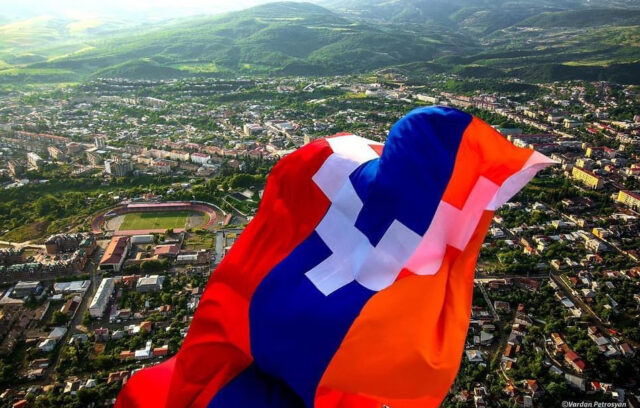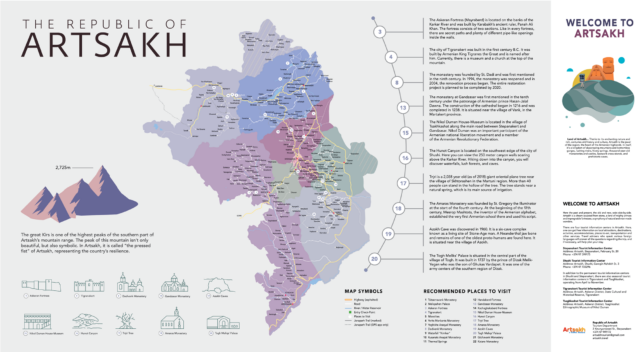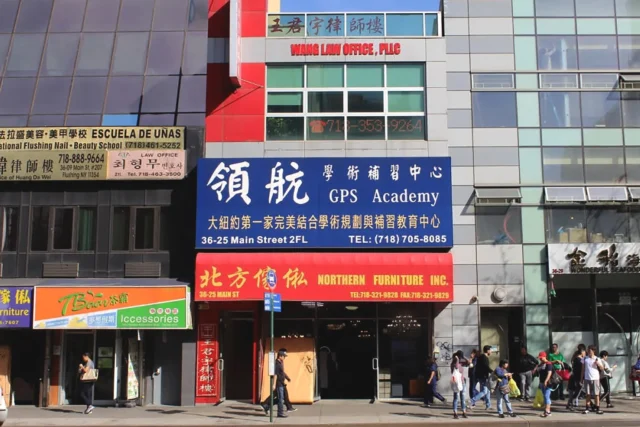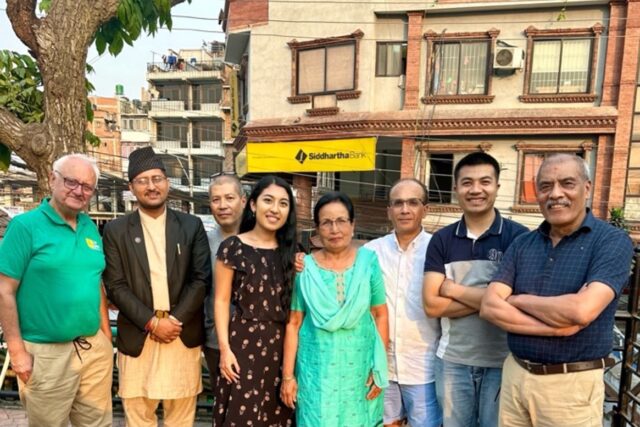“There were executions into mass graves, and death marches of men, women and children across the Syrian desert to concentration camps with many dying along the way of exhaustion, exposure, and starvation.” The official stance of the Turkish government is that the Armenian Genocide never happened. Far from acknowledging the atrocities that their predecessors were responsible for inflicting, Turkish government officials have completely denied the multitude of evidence presented by objective researchers and instigated a propaganda campaign of anti-Armenian hate speech in the hopes of rewriting history.
Paid to Stay Silent
There is a disturbing parallel between Aliyev and Erdogan’s denial of the Armenian Genocide of 1915 and their use of corporate power to cause harm in Artsakh while diverting attention from their true intentions. Just like the former ethnic cleansing campaign was masqueraded as normal wartime casualties, the ethnic cleansing campaign in Artsakh was portrayed as a dispute between two countries over a contested region. Central to the traction that this confounding narrative has gained in mainstream media has been the role of corporate power and the influence of capital. Little more than a week after Azerbaijan launched its military offensive on Artsakh, an Azeri-based limited liability company called Investment Corporation retained US-based S-3 Group, a boutique government relations and public affairs consultancy firm. Their contract promised payments of $25,000 per month for “support in all aspects of social media execution.”
Less than two weeks later, on October 19, 2020, Investment Corporation signed another contract, this time with public relations agency Portland PR. The Azeri-based firm promised to shell out $30,000 per month for assistance with “strategic US and international media support.” According to the Institute for the Study of Human Rights at Columbia University, Azerbaijan spent over $1.25 million on payments to public relations consultants “to bolster Azerbaijan’s image in the media and to lobby members of the US Congress” in the five years leading up to the Second Artsakh War.
Turkey similarly relied on corporate power and capital influence to “connect with public policy stakeholders” when it retained Mercury Public Affairs, LLC for the exorbitant price of $1 million. In an October 2020 Politico article, Aram Hamparian, the executive director of the Armenian National Committee of America, described the contracts between Azeri and Turkish corporations and lobbying firms in Washington D.C. “A lot of people have bought a lot of summer homes and fishing boats and put their grandkids through college by lying about Armenia and covering up for Azerbaijan.”
“A lot of people have bought a lot of summer homes and fishing boats and put their grandkids through college by lying about Armenia and covering up for Azerbaijan.”
Other corporate actors implicated in Azerbaijan and Turkey’s agenda to distort the reality of their ethnic cleansing campaign in Artsakh include Capitol Counsel, Greenberg Traurig, BGR Group, Podesta Group, and Livingston Group. By funneling funds through private companies like Investment Corporation that benefit from limited liability and the protection of a corporate shield, the Aliyev and Erdogan regimes take advantage of lenient corporate regulations to evade accountability for their anti-Armenian state policies. On the other side of those large transactions, public relations and lobbying firms that also benefit from loose legal and corporate structures are willing to disseminate disinformation for the pursuit of profit. By prioritizing financial gain over human rights violations that rise to the level of genocide, these corporations have enabled the utter neglect of stakeholders who are most vulnerable but least able to advocate on their own behalf.
Corporate power has convinced the West that there is no need to take a firm stance against ethnic cleansing in Artsakh. To the contrary, corporate power has enabled two genocidal dictators to paint the Second Artsakh War as a dual-sided conflict undeserving of attention from the international community. Remaining complicit in this scheme conceals the reality of the suffering that Indigenous Armenians in Artsakh continue to endure: seeing videos of their family members brutally beheaded on social media, reading reports of tortured prisoners wondering whether their children are still alive, and forcibly fleeing from their homes while the rest of the world stays silent.
Blood Money
“The hardest moment was seeing scorched and dismembered bodies of soldiers … the smell of death that surrounded them is the same smell that I can smell even when I am asleep,” Helen Hakobyan shares her testimony volunteering as a nurse during the Second Artsakh War in an interview with Siranuysh Sargsyan for The Armenian Weekly. “The first horror I witnessed was when the second horrible bombing occurred on the first of October in Martuni [the most heavily devastated city in the Second Artsakh War], resulting in many casualties. It seemed that the soldier who was in front of me was alive, but they took him to the morgue. His body was dismembered … he looked at me one last time and then passed away. It is impossible to forget those eyes.”
Isabel Dangourian, another Armenian woman living in Artsakh, recalls “seeing a mother, under intense bombing, bid farewell to her own young son while whispering in his ear asking him to stay strong and wait for her return.” Lara Sargsyan, who bravely served in the Second Artsakh War and in Artsakh’s Defense Army for 12 years before that, says, “The most difficult moment during the war in my case was me hearing on the radio that the next attack would be on my brother’s positions … I don’t even want my enemy to have that feeling. I could not do anything to help and I was just praying to God. I’m still haunted.”

A photograph of Stepanakert, the capital city of Artsakh, with the Artsakh flag overlaid taken by Vardan Petrosyan
For the governments of Azerbaijan and Turkey to achieve their goal, described by the former Mayor of Baku in a 2005 speech as “the complete elimination of Armenians,” they hired mercenaries and sent them to Artsakh while relying on the cover of corporate power to deflect responsibility. According to the United Nations Office of the High Commissioner for Human Rights, “international law prohibits the use of mercenaries in armed conflict.” But the Aliyev regime needed a mechanism to legitimate its use of state power to create inequality in Artsakh, and hiring mercenaries to fight on behalf of Azerbaijan in the Second Artsakh War might prevent the people of Azerbaijan from deeply scrutinizing their government’s decision to perpetrate violence completely unprovoked in the midst of a deadly pandemic.
This type of legitimacy is especially desirable in the context of Aliyev’s dictatorship hoarding wealth for a close inner circle of family and friends while “looting their own country.” It appeared that Turkey had the perfect solution: a corporation called Sadat International Defense Consultancy allegedly recruited men from northern Syria and flew them to Artsakh by offering to pay them $2,000 per month to patrol the border. But the reality was far from what was promised.
Sadat was founded ten years ago by a former general of the Turkish Armed Forces and chief military advisor named Adnan Tanriverdi. The corporation’s board of directors is comprised of only five individuals, including Tanriverdi himself as well as Tanriverdi’s son, who is the current chairman. By concentrating all control of Sadat within a small group of people who are intimately tied to one another and undoubtedly share common interests, Tanriverdi has designed a corporate structure that is dangerous for any entity with a stake in its operations. Furthermore, elevating his son to such a prominent directorial role within the corporation inevitably allows Tanriverdi to exercise immense influence over important decisions.
The vision of the future that Tanriverdi hopes to effectuate by harboring power within his quasi-governmental private military company is clear. Tanriverdi praised the use of mercenaries compared to the deployment of Turkish troops due to the economic benefits of such an arrangement, akin to selling exports. “‘Absolutely, Turkey needs a private company like Blackwater or Wagner,’ Tanriverdi was reported as saying, indicating that it would be a new tool in Turkey’s foreign policy.”
“‘Absolutely, Turkey needs a private company like Blackwater or Wagner,’ Tanriverdi was reported as saying, indicating that it would be a new tool in Turkey’s foreign policy.”
Blackwater Security Consulting was an American private military company (renamed Academi) that faced severe backlash in 2007 when four employees opened fire in Nisour Square in Baghdad and murdered 14 unarmed Iraqi civilians. The New York Times reported that the shooting “highlighted America’s reliance on private contractors to maintain security in combat zones.” The company had received more than $1 billion in government contracts, and the “Nisour Square shooting transformed Blackwater from America’s most prominent security contractor into a symbol of unchecked and privatized military power.” The Wagner Group has been called Russian President Vladimir Putin’s private army. According to The Economist, in February 2022 allegations surfaced that “more than 400 mercenaries belonging to Russia’s Wagner Group [had] been sent to Kyiv to assassinate Volodymyr Zelensky, Ukraine’s president.” The organization has managed to escape legal liability in part by structuring itself as a network of companies and groups rather than a single entity that can be easily held accountable for corporate dealing and human rights violations.
Immediately obvious parallels emerge between Blackwater, Wagner Group, and Sadat. The latter had previously been accused of supervising and training thousands of mercenaries by the Pentagon in a report to the United States government. By manipulating the generous deference that corporate law affords corporate entities, the Turkish government likely channeled Sadat’s plentiful resources in support of its ethnic cleansing campaign during the Second Artsakh War. According to the United Nations Office of the High Commissioner for Human Rights, “there were widespread reports that the Government of Azerbaijan, with Turkey’s assistance, relied on Syrian fighters to shore-up and sustain its military operations in the Nagorno-Karabakh conflict zone, including on the frontline.”
The Wall Street Journal described the complex process of recruitment and transportation that facilitated the use of hundreds of foreign fighters in Artsakh. In July 2020, rumors began circulating among Syrian rebel factions that Turkey was enlisting fighters to send to Artsakh on behalf of Azerbaijan. People were allegedly transported to Artsakh as early as mid-September and traveled in groups of up to 100 at a time. But many asked to return, shocked by the horrors they witnessed. The mercenaries participated in two weeks of land and aerial military drills in Azerbaijan, organized by Turkey. Turkey also supplied the Azeri government with attack drones, which gave the Azeri military an edge in the Second Artsakh War, according to Aliyev.
The words of a Syrian man charged with preparing spreadsheets of people signing up to participate in the conflict highlight the vital role of capital in this broader scheme. “‘People no longer care who they are fighting with or against, now all they ask about is the money,’ he explained. ‘Wherever there is money they will go.’” In September 2020, “a 38-year-old Syrian rebel signed up to fight in Azerbaijan, motivated by the promised monthly salary of $1,500. ‘We’re being sent to our deaths,’ said the man. ‘But in the end we care about providing bread for our families.’ The rebel, who said he was waiting to be deployed to Nagorno-Karabakh, plans to cross from Syria into Turkey, where he said chartered flights transport the fighters to Azerbaijan.” Through their corporate establishment, the Turkish government has not only failed to support people who find themselves in economic turmoil due to the difficult conditions in their country, but it has actually gone so far as to exploit the financial desperation of people in Syria to incentivize them to commit murder.
“‘People no longer care who they are fighting with or against, now all they ask about is the money,’ he explained. ‘Wherever there is money they will go.’”
According to the corporation’s website, “SADAT Defense is the first and the only company in Turkey, that internationally provides consultancy and military training services at the international defense and interior security sector. SADAT Defense was founded, under the presidency of Brigadier General (Retired) Adnan TANRIVERDI, by 23 Officers and NCOs retired from various units of Turkish Armed Forces and began its activities after the official declaration of ‘articles of incorporation’ by the 28th of February, 2012.” The corporation’s purported mission “is to establish a Defense Collaboration and Defense Industry Cooperation among Islamic Countries to help Islamic World take the place where it merits among Superpowers by providing Strategic Consultancy, Defense and Security Training and Supply Services to Armed Forces and Internal Security Forces of Islamic Countries.”
In an attempt to bolster its legitimacy by feigning extensive procedural clearance, Sadat’s website claims that “incorporation procedures, which normally take a few days when they make their official application to establish the company at the end of 2011, it took a few months to examine the legal regulations, whether it is possible to establish the company and to carry out the necessary research to keep the business within legal boundaries, and after some corrections were made in the charter of company, its establishment was approved in February 2012.”
By highlighting alleged modifications to their charter, Sadat hopes to disguise the easily satisfied requirements for incorporation and create the illusion of thorough vetting. Everywhere else on its website, Sadat swears by its world-class services, but in response to the proposition that the corporation is Turkey’s private army, Sadat responds with incredulity: “Do you really think we are professional enough to fool the global powers? Have we developed methods that no one else has discovered?”
The implications of the international community’s silence towards these grave violations of human rights and international law are extremely problematic, as they send a signal to the Turkish and Azeri governments that their actions will not be condemned. Not only does this fragrant indifference essentially make international bodies complicit in the ethnic cleansing of Indigenous Armenians, but it also sets an extraordinarily dangerous precedent for other minority groups that have been historically persecuted in the region. If the governments of other nations rely on the example of the Second Artsakh War and assume that they may employ corporate power at the invitation of corporate law to murder civilians, torture prisoners of war, and commit other heinous crimes, it would certainly pave the way for a frightening future ahead.
The Worst of the West
Abuse of corporate influence to fuel genocide has extended to the United States government, where elected officials have been captured by corporate interests that empower Aliyev and Erdogan’s human rights abuses. In the two years before the Second Artsakh War, the Trump administration decided to increase security aid to Azerbaijan to the tune of $100 million. Multiple members of the United States House of Representatives expressed grave concerns over this allocation of funding. New Jersey’s 6th District Representative, Frank Pallone, warned, “If you give them $100 million to pay for things, that’s $100 million extra for things that could be used against Armenia.”
Former United States President Donald Trump’s shady business dealings with Azerbaijan had previously come under scrutiny by journalists reporting on his hotel partnership in Baku. In an article entitled “Donald Trump’s Worst Deal” published in the New Yorker, Adam Davidson reports that “the President helped build a hotel in Azerbaijan that appears to be a corrupt operation engineered by oligarchs.” “Trump partnered with an Azerbaijani family that U.S. officials called notoriously unethical” to build a five-star hotel and residence called the Trump International Hotel & Tower Baku. To distance his personal image from the business deal, Trump used his real estate development corporation, Trump Organization, which represents hundreds of entities solely or principally owned by Donald Trump. When Davidson “asked a former Trump Organization executive if the Baku deal has seemed unusual, he laughed. ‘No deal there seems unusual, as long as a check is attached.’”
When Davidson “asked a former Trump Organization executive if the Baku deal has seemed unusual, he laughed. ‘No deal there seems unusual, as long as a check is attached.’”
“The Azerbaijanis behind the project were close relatives of Ziya Mammadov, the Transportation Minister and one of the country’s wealthiest and most powerful oligarchs.” But according to Alan Garten, the Trump Organization’s chief legal officer, the company’s lack of direct engagement with Mammadov meant that Donald Trump’s ethics were as clean as a whistle. To the contrary, Garten claims “Trump played a passive role in the development of the property: he was ‘merely a licensor’ who allowed his famous name to be used by a company headed by Ziya Mammadov’s son.” He just managed to reap millions of dollars in the process.
President Joseph Biden became the first sitting United States president to formally recognize the Armenian Genocide on April 24, 2021. But just weeks later, the Biden administration extended a waiver enabling the United States to continue providing military assistance to Azerbaijan. Although United States Secretary of State Anthony Blinken assured that the additional military assistance would not “be used for offensive purposes against Armenia,” no verification has yet emerged regarding where the money was spent. It is doubtful that such information will ever be provided in the future. Indeed, United States officials have failed to issue an investigation of the role of Turkish corporations in recruiting mercenaries to fight for Azerbaijan in the Second Artsakh War.
Lack of investigation will likely continue to encourage the opacity of financial disclosures on the part of Sadat and similar private companies manipulated by government entities to do their bidding. Absent international effort to reform legal provisions that empower corporations to profit from ethnic cleansing campaigns, there is a slim chance that change will happen on its own. Incentive structures that reward state and corporate actors alike for human rights abuses create a perpetual cycle of prioritizing money over people’s lives.
Instead, statements from United States officials referencing the Second Artsakh War have remained neutral. Neutrality is not only a result of political considerations related to Azerbaijan’s stature in the extremely lucrative oil industry, but it is also a result of corporate capture. Earlier this year, the FBI raided the home and office of Texas’s 28th District Representative, Henry Cuellar, in conjunction with a federal grand jury probe seeking records about Cuellar’s involvement with companies that have ties to Azerbaijan. The Washington Post documented a 2013 all-expenses-paid conference that the state-owned oil company of Azerbaijan secretly funded for 10 members of Congress, who received “hundreds of thousands of dollars’ worth of travel expenses, silk scarves, crystal tea sets and Azerbaijani rugs.” To conceal the source of its funding for the conference, the State Oil Company of the Azerbaijan Republic (SOCAR) “allegedly funneled $750,000 through nonprofit corporations based in the United States” according to an Office of Congressional Ethics report. “The oil company issued invitations, sponsored visa entries for the lawmakers and staff members, and hung banners and placards emblazoned with SOCAR’s logo throughout the conference halls in Baku.”
To conceal the source of its funding for the conference, the State Oil Company of the Azerbaijan Republic (SOCAR) “allegedly funneled $750,000 through nonprofit corporations based in the United States” according to an Office of Congressional Ethics report.
Promises to the Armenian-American community to end complicity have gone unheeded. During his presidential campaign, Biden called on Trump to “stop the advance of Azerbaijani troops into Nagorno-Karabakh,” “stop the flow of military equipment to Azerbaijan, and call on Turkey and Russia to stop fueling the conflict with the supply of weapons and, in the case of Turkey, mercenaries.” But in an April 2020 Senate Foreign Relations Committee hearing, Secretary Blinken’s comments were ambivalent. He discussed engagement “with leadership in both Armenia and Azerbaijan … to help advance the prospects for a long-term political settlement with regard to Nagorno-Karabakh.”
The Role of Regulation
Too much time has gone by with the United States actively participating in a free market system that sells off armed conflict to the highest bidder. The contributions of corporate power have facilitated an aggressive ethnic cleansing campaign that has led to the loss of countless lives since its inception over a century ago. For Armenians in the South Caucasus region, who are vastly outnumbered by the oppressors that wish to annihilate their existence, the regulation of capital’s influence is imperative. We cannot continue to endorse the prioritization of profit over the existence of an entire ethnicity. We have a duty, not only as members of legal signatories, but as advocates of basic human rights to prevent history from repeating itself. Without our direct action, it surely will.










